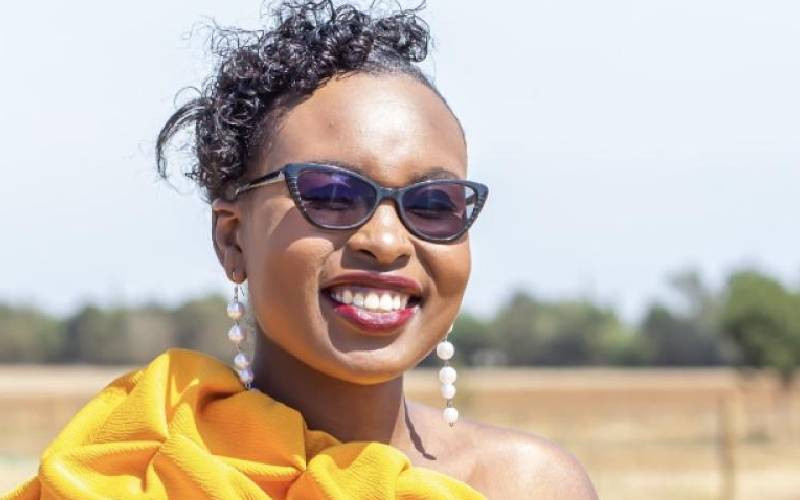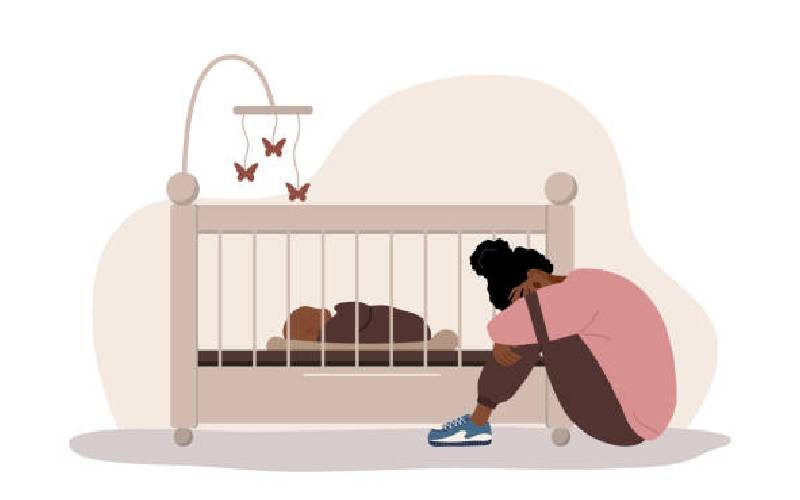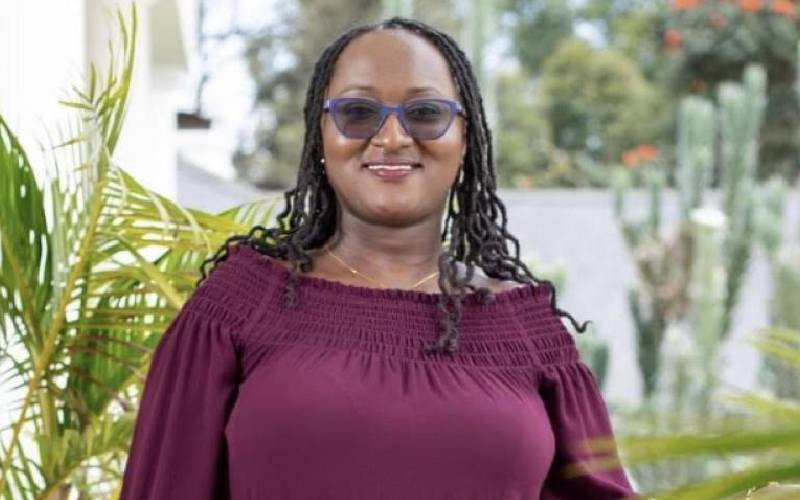
Motherhood is beautiful. It's a feeling like no other. You think you have loved, but wait until you have a baby and you will know what true love really is.
These and many more are some of the comments most expectant mothers and any woman planning to be a mother will get.
But, what happens when you do not experience any of that? What happens when the bundle of joy you delivered, does not live up to its name?
Not every woman experiences a love like no other when she is first handed her baby.
Some take a day, others months.
Questioned
The story of the 24-year-old Kitengela woman, Olivia Naserian, who is accused of disemboweling her child shook many. Some wondered how a mother could do that to a child while others questioned what triggered such action.
Jane, who chose to go by her first name due to the nature of her story, says apart from feeling like a failure and not worthy to be a mother, she loathed her baby. The cries triggered her the most.
- New research reveals lasting physical, mental scars of FGM
- Unmasking the pain behind men's mental health
- Kenya to host Africa women in STEM summit amid gender gap push
- After the trauma, finding pathways to healing
Keep Reading
"I hated my baby so much. When he cried I would pinch him and even slap him."
He was 4 months old at the time. "There are times I thought of throwing him down several floors," she says.
Jane decided to seek help after one incident. It was around 8pm and she was home alone. It was the nanny's day off and the baby had started crying because she had refused to breastfeed him.
"I slapped him so hard that he fell from the couch. He fell with his back on the ground and did not cry this time. He just looked at me with sad eyes. I will never forget that look for the rest of my life. It felt like he was asking me, why are you hurting me when you are the one who is supposed to protect me? I picked him up and cried so hard my whole body was shaking."
Jane googled 'Why do I hate my baby' and decided she needed to seek professional help.
"I was put on medication. I have never told anyone this story."
Unsure
Chebet Birir, a 29-year-old mother of two says she started feeling unsure about everything.
"I was scared, I had just finished university and I had thoughts of abortion but my boyfriend who is my husband now advised me not to. I graduated when I was three months pregnant," she says.
Chebet delivered without complications and headed to live with her in-laws after she lost her job.
Staying with her new family, she says, brought a lot of uncertainty.
"They took care of me but I was uncomfortable because I did not know how to behave. I would try to do chores and they would say I shouldn't because I had just delivered. I started feeling like I am not worthy, not important."

What triggered her the most was a party that was held for the baby.
"I felt guilty. I thought they brought the presents because I am not able to afford to take care of my own child. My husband also did not have a good job at the time," she says.
Chebet started believing she was the devil and had suicidal thoughts. "I wanted to kill myself and go with my baby because who would take care of her?"
She would later go back to her mother's house in Kericho and that is where she attempted to kill herself for the first time. She went to the kitchen and took a knife.
"I felt so powerless when I held the knife, my hands were weak. Then I heard my mother's voice calling my name," she says.
She was delusional. Apart from not showering for days, she believed the baby was not hers.
Suicidal thoughts
The second time she attempted to kill herself, she had gone to Nairobi with her husband. The husband's friends came to visit, carrying with them a lot of shopping, which triggered her.
"I felt so guilty that I cannot help my husband with finances and that his friends have to buy things for us. So I took my baby who was six months old at the time and went to the balcony to jump from the fifth floor. One of his friends was outside so he hindered my mission."
She was taken to the hospital when the condition worsened.
"I was hearing my baby's crying all over. Every face looked like that of my child, even when I saw an old man's face in the newspaper obituary section."She was given anti-psychotic drugs and the condition was managed.
During her second pregnancy in 2020, the family was on the lookout for symptoms. However, with the second child the depression was different, she "felt like Jesus".
"The first time I was the devil with negative thoughts, this time I was Jesus and would carry all the problems in the world. I would shout come I will give you rest."
Chebet says she would sing songs of praise loudly and wanted to do everything."I was manic. I wanted to enroll for master's, and play basketball. I talked too much, dressed too well, and always wanted to breastfeed the baby. I would shout to the neighbours, 'come ye who are burdened I will give you rest'."
She was given medication and went to her mother in Kericho for a week. "My mother and my husband are my greatest support system."
Support groups
Pasqueline Njau started an organisation in 2017 called Calmind Foundation that promotes maternal mental health through education, support and advocacy. This was after her postpartum depression experience.
"After recovery, I decided that I would not sit and watch other women suffer in that darkness and in silence anymore. It is then that I decided to share my story on various platforms to encourage more women to speak up to create awareness and reduce stigma," she says.
After the birth of her second child, Pasqueline says she felt overwhelmed by everything. "Small tasks made me feel like breaking down and crying."
"There are nights I cried myself to sleep. My baby had serious colic and whenever she would cry I would just find myself crying with her. One moment I will be happy and the next minute I will be so sad," she says.
She felt was a bad mother and her children were better off without her. But the thought of ending her life was too scary.

Her husband knew she was not alright but he could not exactly understand what was happening. According to him, she had just changed.
It took a friend to realise she might be ill and needed to seek help. A counsellor was recommended who told her she was suffering from postpartum depression. "The fact that I had hyperthyroidism increased my risk of falling mentally ill. This is where my recovery began. She walked with me to full recovery."
Knowing the signs
Being aware and knowing the signs of postpartum depression helped Pasqueline when she conceived her third child.
"I was not prepared to get another child soon and I was worried I would get into depression again. However, I was determined to help myself. So I did things very consciously. I hired an extra nanny to help with the baby so I could find time to rest and take care of myself, I also used self-help techniques that effectively helped me sail through without falling into depression," she says.
According to Dr Pacifica Onyancha, visiting psychiatrist at Nairobi West Hospital, postpartum depression occurs within the first year after giving birth, but it typically develops within the first few weeks or months. It is a mood disorder that is characterised by feelings of sadness, anxiety, irritability, and fatigue.
"Postpartum psychosis, on the other hand, is a more severe condition that can involve hallucinations, delusions, and disorganised behaviour. This condition is less common than postpartum depression but can be more dangerous if left untreated," she says.
Onyancha says the exact cause of postpartum depression and psychosis are not well understood, but it is believed that changes in hormone levels, particularly a drop in estrogen and progesterone, can play a role.
Motherhood stress
"The stress of caring for a newborn, lack of sleep, and changes in routine and social support can also contribute to the development of these conditions. In most cases there is usually a family history of mental illness, postpartum psychosis, or other mental conditions like schizophrenia," she says.
Onyancha adds that any woman can experience postpartum depression or psychosis, but certain factors can increase the risk. Women who have a history of depression, anxiety, or bipolar disorder are more likely to experience postpartum depression or psychosis.
Other risk factors include a difficult pregnancy or delivery, a lack of social support, and financial or relationship stress.
In the case of Naserian, lawyer Cynthia Benson says it's the work of the prosecution to prove intent.
"However, we know there's no mother of sound mind who would kill their own child or cause any form of harm. It's hard to prove the woman had the intention to kill her child."
 The Standard Group Plc is a multi-media organization with investments in media
platforms spanning newspaper print
operations, television, radio broadcasting, digital and online services. The
Standard Group is recognized as a
leading multi-media house in Kenya with a key influence in matters of national
and international interest.
The Standard Group Plc is a multi-media organization with investments in media
platforms spanning newspaper print
operations, television, radio broadcasting, digital and online services. The
Standard Group is recognized as a
leading multi-media house in Kenya with a key influence in matters of national
and international interest.











